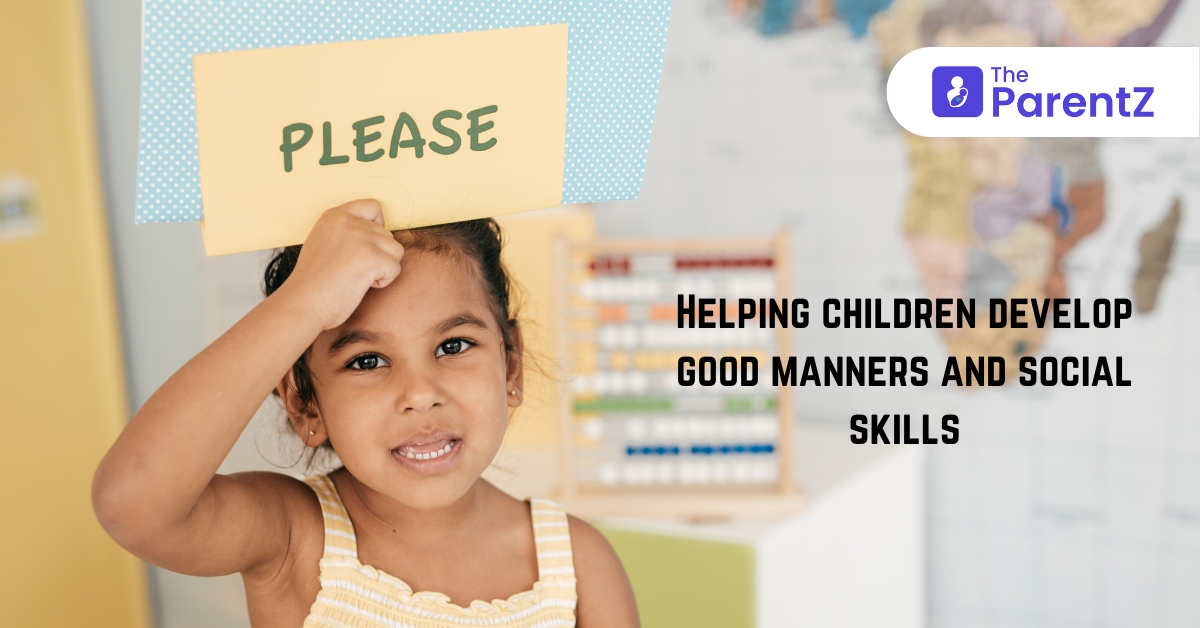Helping children develop good manners and social skills is a lifelong gift that contributes to their personal and professional success. By leading by example, teaching basic etiquette, encouraging empathy, and providing opportunities for practice, adults can empower children to navigate social interactions with confidence and grace. Remember, the investment made in fostering these skills will pay off.
Teach Basic Etiquette
Teaching basic etiquette to children is crucial for their social development. Emphasise the importance of saying “please”, “excuse me” and “thank you”. Teach them to greet others with a smile and a friendly hello. Encourage attentive listening and taking turns to speak. Instil the value of respecting personal space and using table manners. Remind them to apologise when they make a mistake and to demonstrate kindness and consideration towards others. By instilling these fundamental etiquette principles, children will develop into polite and respectful individuals.
Lead by Example
Children learn best through observation and imitation of their parents and caretakers. As role models, adults must consistently demonstrate good manners and social skills. They can exhibit the importance of respectful behaviour by saying “please” and “thank you” , displaying empathy, and showing respect for others. These simple acts serve as a blueprint for children to learn appropriate social conduct.
Encourage Empathy
A key component of social skills is empathy. Encourage kids to recognize and understand other people’s feelings. Teach them to listen actively, show interest in others’ perspectives, and offer support when someone is upset. Engage children in activities that promote empathy, such as volunteering or engaging in acts of kindness. By fostering empathy, children develop strong social connections and learn to navigate relationships with compassion and understanding. Read More
Teach Active Listening
Active listening is a critical skill for effective communication. Teach children to maintain eye contact, nod their heads, and respond appropriately during conversations. Encourage them to ask questions and paraphrase to show understanding. By emphasising the importance of active listening, children develop better communication skills and build stronger relationships with their peers.
Promote Gratitude and Thankfulness
Gratitude and thankfulness are vital social and emotional skills, aiding children in appreciating others’ kindness. Encourage expressing gratitude through “thank you” for acts of kindness or help. Teach writing thank-you notes for gifts or favours received. Fostering gratitude cultivates a positive outlook and teaches valuing and acknowledging others’ efforts.
Set Clear Expectations
Establish clear expectations for behaviour and social conduct. Communicate these expectations to children and reinforce them consistently. Provide gentle reminders when they forget and praise them when they demonstrate good manners and social skills. Clear expectations create a structured environment where children feel secure and are more likely to develop and practise appropriate behaviour.
Foster Social Interaction
Encourage children to participate in social activities that promote interaction with peers. Whether its team sports, clubs, or playdates, these experiences provide valuable opportunities for children to practise their social skills. Monitor their interactions and provide guidance when necessary. By engaging in social activities, children learn to cooperate, negotiate, and build friendships.





Be the first one to comment on this story.